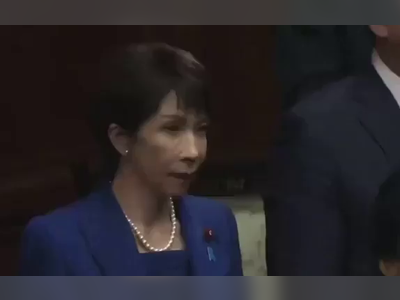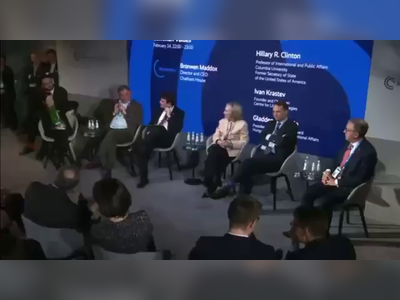Tesla Reaches Record Sales in China in 2024 Despite a Global Delivery Decrease
Tesla's strong performance in China stands in stark contrast to a global downturn, amid heightened competition and regulatory hurdles.
In 2024, Tesla Inc. achieved a record-breaking sale of 657,000 vehicles in China, marking an 8.8% increase from the previous year, even as the company experienced its first-ever global decrease in deliveries.
Accounting for 36.7% of Tesla's total sales last year, China, Tesla’s second-largest market, highlights the nation's importance in the global electric vehicle (EV) sector.
China’s Impact on Tesla’s Expansion
In December, Tesla's sales in China increased by 12.8% month-on-month, reaching 83,000 units and setting a new monthly record.
Nevertheless, the annual output from Tesla's Shanghai plant, which includes both domestic and export sales, fell by 3.3% to around 260,000 units.
Export numbers decreased by 24%, due to reduced European subsidies, a shift in U.S. demand towards hybrid vehicles, and heightened competition from Chinese EV makers like BYD.
John Zeng, leader of market forecasting at GlobalData, credited Tesla’s strong performance in China to the country's leading role in the global EV market.
During the first 11 months of 2024, China was responsible for 70% of global EV and hybrid sales and for over 90% of the growth in these sales globally compared to 2023.
International Market Challenges
Tesla encountered numerous challenges internationally, including a year-long European Commission investigation into subsidies for China-made EVs, which resulted in a 7.8% tariff on Tesla cars from its Shanghai plant.
This led to the first annual drop in deliveries from this facility, Tesla’s most productive.
Global rivalry also intensified.
BYD, Tesla’s closest competitor, reported a 12.1% rise in EV sales, delivering 1.76 million vehicles worldwide.
BYD's passenger vehicle sales soared 41% to 4.25 million units, with foreign shipments increasing by 71.9% to over 417,000 vehicles.
However, BYD faced its own challenges, such as missing its export target due to a 17% EU tariff and ongoing probes into labor conditions at its Brazilian factory site.
Tesla’s Tactical Shifts
In the face of dwindling global deliveries and mounting competition, Tesla undertook strategic changes, including workforce reductions and offering financial incentives to attract Chinese customers.
The company offered a 10,000-yuan ($1,370) discount on loans for the Model Y and introduced zero-interest financing for certain Model 3 and Model Y vehicles through January.
Despite these measures, Tesla's global sales fell by 1.1% year-on-year to 1.79 million vehicles, narrowly maintaining its lead over BYD.
CEO Elon Musk’s previous prediction of slight global growth was unmet as Tesla grappled with a worldwide EV market slowdown and pricing pressures.
The Wider EV Industry
China's leading role in the EV market continues to influence global patterns.
Industry data illustrates that China was the only major market to experience significant growth in 2024, while demand declined in other areas.
BYD and Tesla continue to be key players in this competitive arena, using aggressive pricing and growth strategies to hold onto market share.
As Tesla looks towards 2025, the company is challenged with sustaining its momentum in China while managing regulatory, competitive, and market challenges in other regions.
The ongoing price war in China and the changing global EV landscape will test the resilience of Tesla and its competitors in the coming years.
Accounting for 36.7% of Tesla's total sales last year, China, Tesla’s second-largest market, highlights the nation's importance in the global electric vehicle (EV) sector.
China’s Impact on Tesla’s Expansion
In December, Tesla's sales in China increased by 12.8% month-on-month, reaching 83,000 units and setting a new monthly record.
Nevertheless, the annual output from Tesla's Shanghai plant, which includes both domestic and export sales, fell by 3.3% to around 260,000 units.
Export numbers decreased by 24%, due to reduced European subsidies, a shift in U.S. demand towards hybrid vehicles, and heightened competition from Chinese EV makers like BYD.
John Zeng, leader of market forecasting at GlobalData, credited Tesla’s strong performance in China to the country's leading role in the global EV market.
During the first 11 months of 2024, China was responsible for 70% of global EV and hybrid sales and for over 90% of the growth in these sales globally compared to 2023.
International Market Challenges
Tesla encountered numerous challenges internationally, including a year-long European Commission investigation into subsidies for China-made EVs, which resulted in a 7.8% tariff on Tesla cars from its Shanghai plant.
This led to the first annual drop in deliveries from this facility, Tesla’s most productive.
Global rivalry also intensified.
BYD, Tesla’s closest competitor, reported a 12.1% rise in EV sales, delivering 1.76 million vehicles worldwide.
BYD's passenger vehicle sales soared 41% to 4.25 million units, with foreign shipments increasing by 71.9% to over 417,000 vehicles.
However, BYD faced its own challenges, such as missing its export target due to a 17% EU tariff and ongoing probes into labor conditions at its Brazilian factory site.
Tesla’s Tactical Shifts
In the face of dwindling global deliveries and mounting competition, Tesla undertook strategic changes, including workforce reductions and offering financial incentives to attract Chinese customers.
The company offered a 10,000-yuan ($1,370) discount on loans for the Model Y and introduced zero-interest financing for certain Model 3 and Model Y vehicles through January.
Despite these measures, Tesla's global sales fell by 1.1% year-on-year to 1.79 million vehicles, narrowly maintaining its lead over BYD.
CEO Elon Musk’s previous prediction of slight global growth was unmet as Tesla grappled with a worldwide EV market slowdown and pricing pressures.
The Wider EV Industry
China's leading role in the EV market continues to influence global patterns.
Industry data illustrates that China was the only major market to experience significant growth in 2024, while demand declined in other areas.
BYD and Tesla continue to be key players in this competitive arena, using aggressive pricing and growth strategies to hold onto market share.
As Tesla looks towards 2025, the company is challenged with sustaining its momentum in China while managing regulatory, competitive, and market challenges in other regions.
The ongoing price war in China and the changing global EV landscape will test the resilience of Tesla and its competitors in the coming years.
Translation:
Translated by AI
AI Disclaimer: An advanced artificial intelligence (AI) system generated the content of this page on its own. This innovative technology conducts extensive research from a variety of reliable sources, performs rigorous fact-checking and verification, cleans up and balances biased or manipulated content, and presents a minimal factual summary that is just enough yet essential for you to function as an informed and educated citizen. Please keep in mind, however, that this system is an evolving technology, and as a result, the article may contain accidental inaccuracies or errors. We urge you to help us improve our site by reporting any inaccuracies you find using the "Contact Us" link at the bottom of this page. Your helpful feedback helps us improve our system and deliver more precise content. When you find an article of interest here, please look for the full and extensive coverage of this topic in traditional news sources, as they are written by professional journalists that we try to support, not replace. We appreciate your understanding and assistance.











